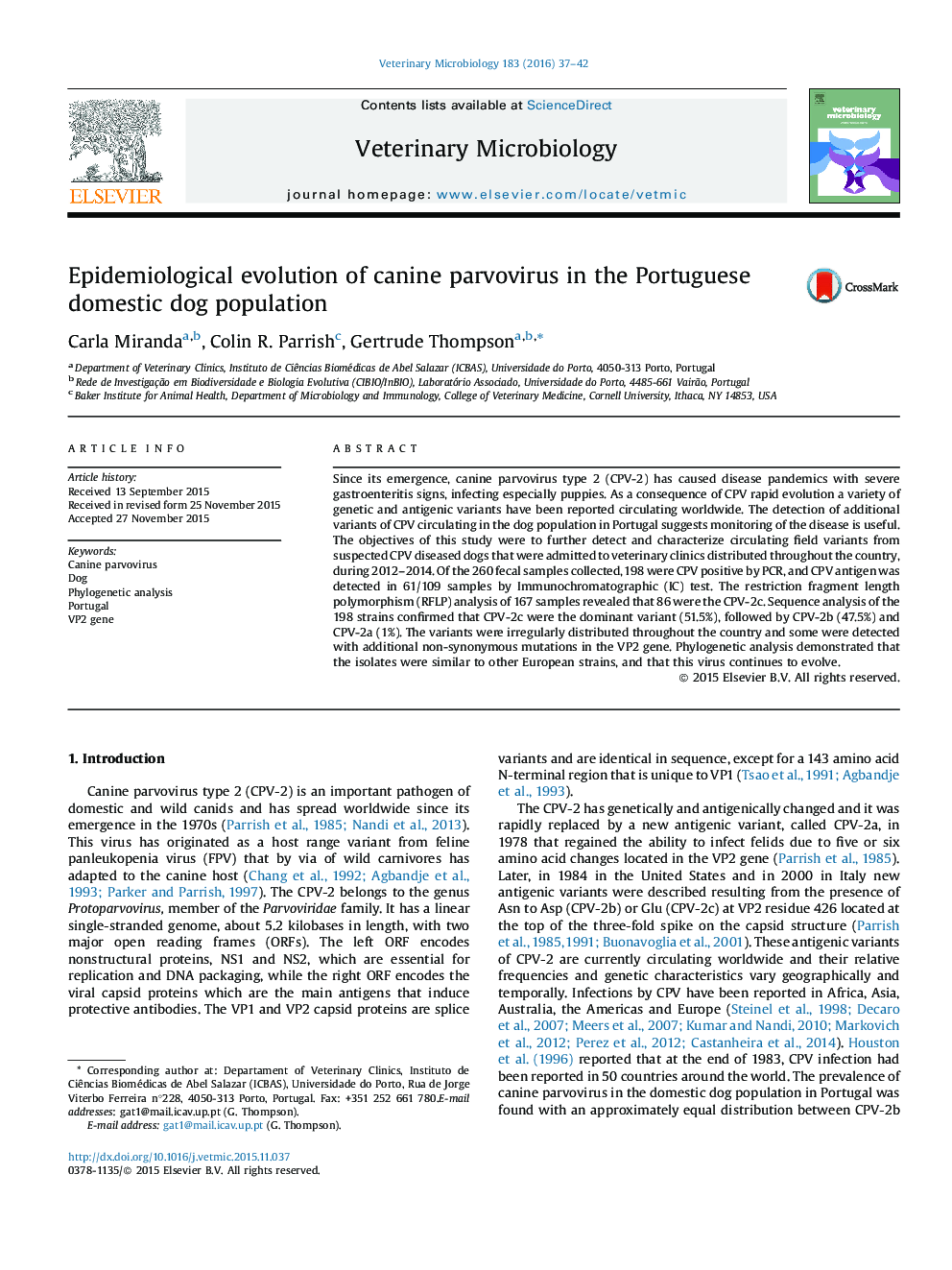| Article ID | Journal | Published Year | Pages | File Type |
|---|---|---|---|---|
| 5799776 | Veterinary Microbiology | 2016 | 6 Pages |
â¢All three CPV antigenic variants were found in the Portuguese dog population.â¢CPV-2c was the most predominant, followed by CPV-2b.â¢The antigenic variants showed a non-uniform distribution throughout the country.â¢The detected antigenic variants are closely related to the European field strains.
Since its emergence, canine parvovirus type 2 (CPV-2) has caused disease pandemics with severe gastroenteritis signs, infecting especially puppies. As a consequence of CPV rapid evolution a variety of genetic and antigenic variants have been reported circulating worldwide. The detection of additional variants of CPV circulating in the dog population in Portugal suggests monitoring of the disease is useful. The objectives of this study were to further detect and characterize circulating field variants from suspected CPV diseased dogs that were admitted to veterinary clinics distributed throughout the country, during 2012-2014. Of the 260 fecal samples collected, 198 were CPV positive by PCR, and CPV antigen was detected in 61/109 samples by Immunochromatographic (IC) test. The restriction fragment length polymorphism (RFLP) analysis of 167 samples revealed that 86 were the CPV-2c. Sequence analysis of the 198 strains confirmed that CPV-2c were the dominant variant (51.5%), followed by CPV-2b (47.5%) and CPV-2a (1%). The variants were irregularly distributed throughout the country and some were detected with additional non-synonymous mutations in the VP2 gene. Phylogenetic analysis demonstrated that the isolates were similar to other European strains, and that this virus continues to evolve.
